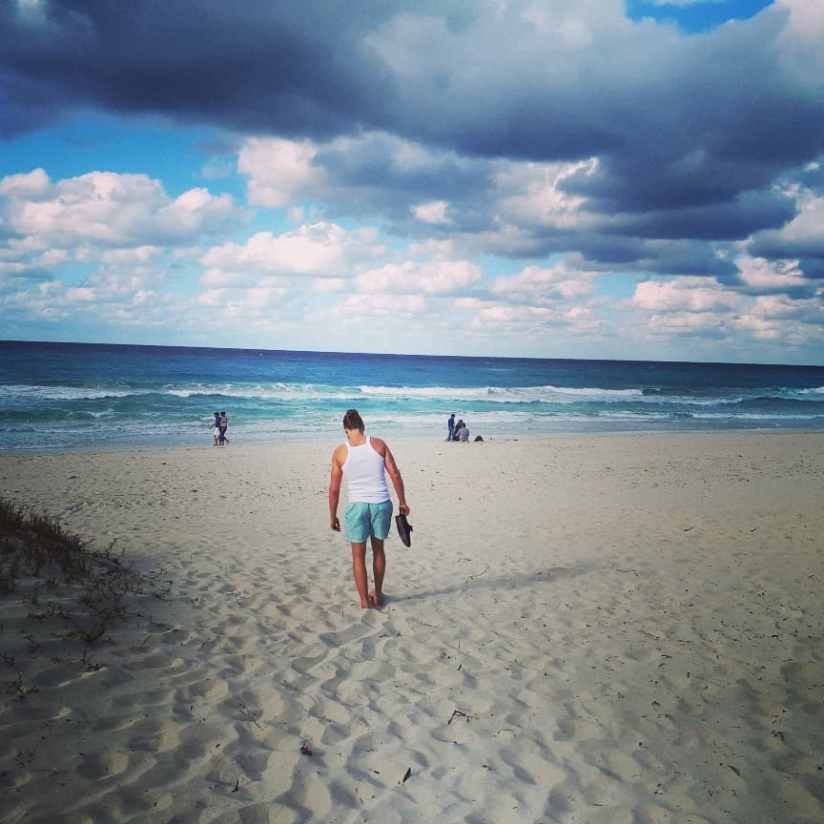This is an important “relationship” topic to talk about. It is the topic of setting boundaries. So often in relationships, words like ‘boundary’ and ‘individual’ are frowned upon for whatever reason. In reality, setting boundaries to protect both your and your partner’s individualism is necessary for a truly happy and healthy relationship.
When you love someone so wholeheartedly it is difficult to tell where your needs should end and theirs are to begin. You want to give them the world even if it means sacrificing your own. While this is okay every now and again (depending upon the circumstances at hand), it is important to set boundaries so that you do not become lost in the desires of another while neglecting your own. This is a skill that has been taking me many years to hone, and not always the easiest to do, especially for women who naturally have an overly nurturing nature and want to give completely of themselves to their partner.
My personal experience with this in regards to past relationships is that I allowed myself to get lost in the life, needs, goals, and dreams of my partners that I completely lost my own identity. Something which took me years of struggle to regain.
Here are four reasons why setting boundaries in your relationship are so important:
Boundaries allow you to maintain your own energy and aura – We all have a spiritual aura about us. This aura is your own and should not be shared or stolen (even if stolen unintentionally) by others, not even the ones in your life that you love the most. When you and your partner fell in love with each other, you fell in love with the individual people. Their aura attracted you to them and vice-versa. When we become possessive of one another we overtake that aura and the individual is lost. Boundaries prevent possession and negative emotions from overtaking the relationship. When you lose your identity to another, you lose the spark that attracted your partner to you in the first place. This is where people start to drift apart, become disinterested and unhappy in the relationship.
Boundaries allow us to stay on a path where there is no place for codependency- When a partner is in need of excessive taking care of and attention from their significant other, codependency creeps in resulting in self-loss, loss of freedom, and extreme emotions of stress, guilt, and unhappiness. For this reason, boundaries in a relationship are important beyond belief. You must set boundaries so that you do not feel responsible for the other person’s problems. Allow them to take responsibility for their own lives and refuse to take on the guilt. Whenever anyone starts to feel like they have lost their freedom, especially men, it results in second guessing the relationship, cold feet, and a desperate need to get away and explore other options. So, the very act of codependency to hold onto your partner only ends up pushing them away faster. And in the end, you’ve taken on their stress, their goals and dreams to the detriment of your own and lose them in the process and are stuck trying to figure who you are once again. You should never give up you for them. In a relationship with boundaries, there is no room for codependency.
That brings us to the next point:
Boundaries forbid others from taking advantage – Setting walls between you and your partner that does not allow them to take advantage of your love and kindness is extremely important. It is not your job to live their life for them, but rather you should live together as equals and share in the happy times and support through the bad times. If one is constantly taking advantage of the other, mutuality and equal love does not exist in the relationship. When you start to notice that your relationship has become one sided, either emotionally, financially, mentally, or physically…you must setup boundaries to protect your own dignity and self respect. If you do not, you are actively participating in your own abuse. Setting up walls doesn’t mean that you are holding your partner at a distance. It just means that you won’t allow yourself to be used or exploited. If you don’t have respect for yourself, how can you expect your partner too?
Boundaries allow us to explore talents and interest that our partners may not share – If you always do what your partner wants to do and refuse to explore your own interests, you become nothing more than a puppet to another’s desires. No one wants to live as an extension of someone else. It’s much better to maintain your own life so at the end of the day you and your partner actually have lives to share. After all, isn’t that the point?
What are the takeaways?
In the end, relationships without boundaries will likely become miserable, codependent, and likely to be filled with anger and resentment and result in coming to an end. One person will become sick due to enabling while the other completely lost in the desires of others. That’s a place no one should be, especially not the ones you love more than anything. Most relationships have a lifespan. Some, longer than others. The average lifespan of relationships these days is approximately 7-10 years. Because even though you’re giving it your best shot, you love each other so much and you want to do everything you can to hold it together…if you don’t prepare for it, there will come a time when people realize that maybe they’ve lost a bit of who they are as an individual. They feel trapped and have an overwhelming need to “rediscover” themselves, try new things, meet new people. It’s only natural.
So, if you keep this in mind throughout your relationships, you can actually setup boundaries in many areas of in your lives that will pre-empt these negative emotions from occurring. Giving each other the space needed to explore new things, meet new people, go places and see things. Live life as an individual human being with individual, original thoughts and ideas. Keep your partner interested in you and keep that spark alive that drew them to you in the first place and not allowing your relationship to become stagnate and tired.
Ask yourself this question, what kind of boundaries do you have with your partner? They may not like it if you don’t already have some in place, but it’s never too late to start setting boundaries and building upon them. If your partner gets upset as a result (and that is often the case) then that only proved that you have a greater need for boundaries.








